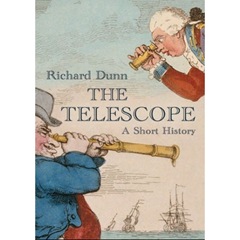Shanghai Library adds 2 million records to WorldCat to share its collection with the world Compiled by Ming POON, Josephine SCHE, and Mi Chu WIENS (November, 2004).
From the post:
Shanghai Library, the largest public library in China and one of the largest libraries in the world, has contributed 2 million holdings to WorldCat, including some 770,000 unique bibliographic records, to share its collection worldwide.
These records, which represent books and journals published between 1911 and 2013, were loaded in WorldCat earlier this year. The contribution from Shanghai Library, an OCLC member since 1996, enhances the richness and depth of Chinese materials in WorldCat as well as the discoverability of these collections around the world.
“We are pleased to add Shanghai Library’s holdings to WorldCat, which is the global union catalog of library collections,” said Dr. Jianzhong Wu, Director, Shanghai Library “Shanghai is a renowned, global city, and the library should be as well. With WorldCat, we not only raise the visibility of our collection to a global level but we also share our national heritage and identity with other libraries and their users through the OCLC WorldShare Interlibrary Loan service.”
“The leadership of Shanghai Library has a bold global vision,” says Andrew H. Wang, Vice President, OCLC Asia Pacific. “The addition of Shanghai Library’s holdings and unique records enriches coverage of the Chinese collection in WorldCat for researchers everywhere.”
I don’t have a feel for how many unique Chinese bibliographic records are online but 770,000 sounds like a healthy addition.
You may also be interested in: Online Resources for Chinese Studies in North American Libraries.
Given the compilation date, 2004, I ran the W3C Link Checker on http://www.loc.gov/rr/asian/china-bib/.
You can review the results at: http://www.durusau.net/publications/W3CLinkChecker:http:_www.loc.gov_rr_asian_china-bib_.html
Summary of results:
Code Occurrences What to do (N/A) 6 The link was not checked due to robots exclusion rules. Check the link manually, and see also the link checker documentation on robots exclusion. (N/A) 2 The hostname could not be resolved. Check the link for typos. 403 1 The link is forbidden! This needs fixing. Usual suspects: a missing index.html or Overview.html, or a missing ACL. 404 61 The link is broken. Double-check that you have not made any typo, or mistake in copy-pasting. If the link points to a resource that no longer exists, you may want to remove or fix the link. 500 5 This is a server side problem. Check the URI. (emphasis added)
At a minimum, the broken links need to be corrected but updating the listing to include new resources would make a nice graduate student project.
I don’t have the background or language skills with Chinese resources to embark on such a project but would be happy to assist anyone who undertakes the task.
